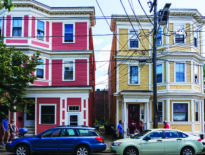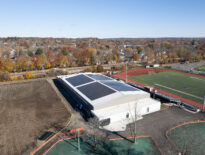
George Sarkis
Boston has long been defined by its institutions, world-class universities, top hospitals and historic neighborhoods. But the next wave of luxury buyers looks different from the one before it.
International capital is flowing back into Boston’s high-end real estate while local entrepreneurs, especially in tech, life sciences and private equity, are competing for the same premium properties. The result: a market that is global in reach, local in ambition, and focused on quality, privacy and long-term value.
After pandemic-related restrictions, Boston’s global buyer-base has returned with sharper intent. Investors from Europe, the Middle East, and Asia see Boston as a safe harbor, with top-tier education, stable governance and long-term asset protection. Unlike five years ago, many are no longer seeking short-term diversification; they are planting roots.
Families are establishing primary or secondary residences for school, and executives are relocating to tap Boston’s innovation economy.
This shift is shaping what they buy. Global investors increasingly favor architecturally significant townhomes in Beacon Hill, boutique buildings in Back Bay or new penthouses blending global design with Boston’s heritage. Many global buyers are also looking for turn-key properties that require minimal renovation, a demand that has intensified competition for the limited number of fully finished, high-quality homes.
The Rise of Local Visionaries
Simultaneously, Boston-born buyers are entering the luxury market with fresh energy. Tech founders, biotech innovators and venture capitalists in their 30s and 40s are curating lifestyles, valuing design, sustainability and technology integration over sheer square footage.
They renovate thoughtfully, integrate smart-home systems and commission interiors reflecting personal style. For them, luxury isn’t opulence, it’s optimization.
Where these forces intersect, competition intensifies. International capital and local innovators often target the same product types: new-construction condominiums in walkable neighborhoods with design integrity and work-from-anywhere amenities.
In places like the Seaport, Back Bay and Cambridge’s Kendall Square corridor, it’s common to have global investors and local founders competing for the same listings, even before they hit the open market.
The market now rewards quality and punishes compromise. Average doesn’t sell.
Developers recognize this and are creating residences with wellness spaces, art curation, eco-conscious materials and hospitality-level service rather than relying on the old luxury formula of size alone. These lifestyle-driven amenities are becoming essential for capturing both domestic and international demand.
Corporate Relocation and Migration
Corporate migration is another driver of demand. Boston is attracting major headquarters and tech expansions, bringing high-earning professionals and global footprints into the region. For example:
- Hasbro is relocating to Boston’s Seaport District.
- The LEGO Group is moving to Back Bay.
- Tech companies like SAP LeanIX are expanding downtown.
These relocations fuel luxury residential demand. Executives bring relocation packages, bonuses and a preference for urban living, increasing competition for top neighborhoods and premium properties.
The Psychology of Value
Conversations with both international and local buyers reveal a common theme: confidence. They want secure investments with resilience, not just appreciation potential.
Boston delivers. Its fundamentals, education, medicine and innovation create consistent demand. Even in slower cycles, top-tier properties hold or regain value faster than in more volatile metros.
Yet scarcity drives competition. Move-in-ready homes under $5 million remain one of the tightest segments of the market. Inventory at that level is often absorbed immediately, especially in Back Bay, Beacon Hill, the South End, and Newton.
Many buyers are turning to pre-construction opportunities or off-market transactions simply because there are so few fully finished, high-quality options available. In competitive pockets like the Seaport or Brookline, it’s not unusual to see multiple offers or buyers willing to secure a property sight-unseen, particularly when the home checks the box on design, location and modern finishes.
Over the next five years, Boston’s luxury landscape will continue blending old and new money, local and global talent. Expect more high-end development along the Charles, the continued rise of the Seaport as an international hub and greater demand for sustainable, wellness-focused living.
What excites me as a broker isn’t just transactions, it’s transformation. Watching new energy reinterpret what success and luxury mean in modern Boston is inspiring. The next wave of buyers isn’t just buying real estate, they’re shaping the city’s future.
George Sarkis is CEO and cofounder of The Sarkis Team at Douglas Elliman Massachusetts.






